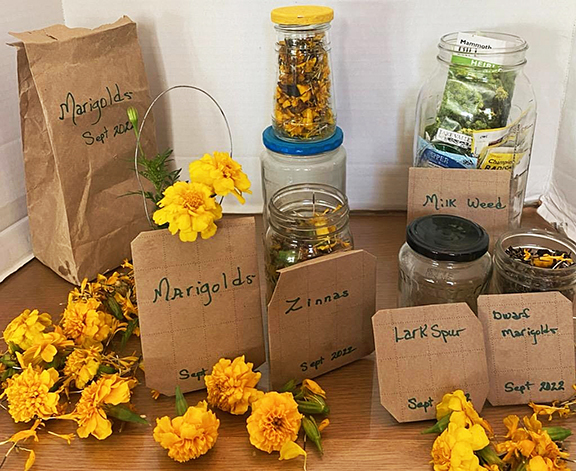Welcome!

Never say 'thank you' when given a plant
I’ve had this article running through my thoughts because so many times when I’ve given a plant to someone and I’ve gotten that reply.
Never say “thank you” when you’re given a plant, or it may not live.
Since Fall is the best time to dig up and separate lots of perennials and I also save seeds to share and give to people, it made me think about that phrase. I catch myself telling my plant buddies as I dig up plants or have them dig them up themselves, I mention “Don’t say thank you.”
I wondered where that phrase came from, so I went to check it out on our friend Google. I thought, well, while I’m at it, where did the name Google come from. Google stands for Global Organization of Oriented Group Language of Earth. After acquiring that useful piece of information, I went after my first query regarding giving away plants.
It seems this is an old tradition that started as a superstition many years ago. It is basically you should not say thank you when you are given a plant, or it will either not grow well or it may die if you thank the giving party.
So, I guess we can just smile and say I really like this plant, but never say thank you.
Fall seems to be the best time to test this old superstition because it is such a great time for S.S.S. — Save, Separate and Share. (I just made that up!) Save seeds, Separate perennials and Share with friends.
A little tip on saving seeds: Some good ones to save are zinnias, marigolds and tomatoes, peppers, beans and peas — all good choices for seed saving. They have flowers that are self-pollinating and need little or no treatment before storing.
The best way to store after drying is to put them in paper packets. I like to use brown paper bags. Be sure to label them and store in sealed glass containers.
It is also important to keep the seeds dry and cool. I like to use the brown paper lunch bags and dry my zinnias and marigolds, and once I’m sure they are totally dry, I place them in glass jars I’ve saved, like olive or pickle jars. They make attractive gifts and the seeds themselves are actually pretty and colorful showing through the glass.
When separating perennials, it’s best to dig up the parent plant using a spade or fork. Gently lift the plant from the ground and remove any loose soil around the roots. Do this on a cloudy day, preferably when several days of light rain in the forecast.
Most perennials should be divided every three to five years. Some, like mums, may need to be divided every one or two years or they will crowd themselves into non-flowering clumps of leaves and roots.
Now think about sharing some of these especially with your plant buddies, and it’s also a great way to make some new friends. But remember, don’t say thank you to the person giving you plants!
